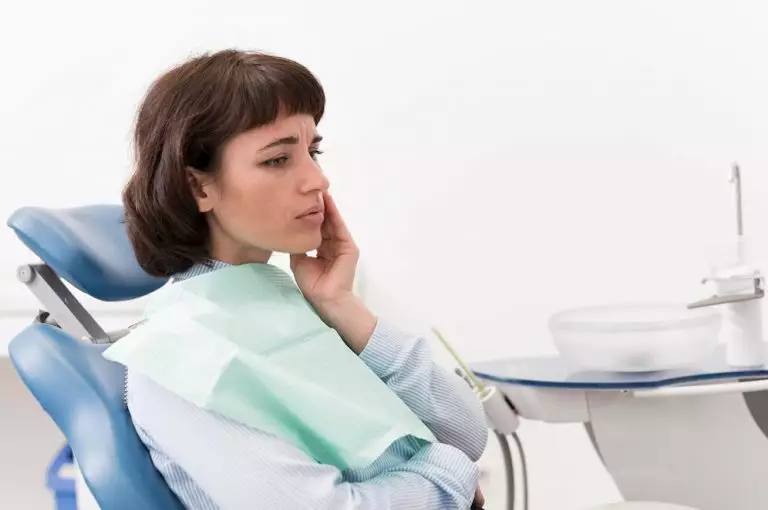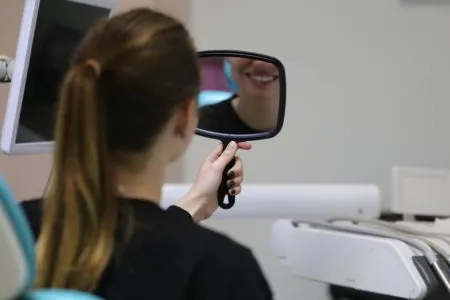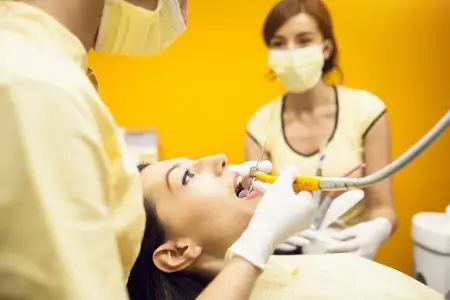Content[ hide ]
Main causes of acute toothache
Before pondering how to get rid of a toothache, you need to understand what may be causing it. There are several causes:- Cavities. The tooth is destroyed by bacteria. There may be discomfort when eating cold, hot or sweet foods. This toothache is temporary, but usually requires treatment.
- Pulpitis. Inflammation usually develops against the background of slowly progressing caries. The process is accompanied by aching pain, which increases with the use of cold or hot food and drinks. It is difficult to say how to relieve toothache at home – even a strong analgesic in this case gives only temporary relief. Do not delay pulpitis treatment if you notice any of the above symptoms.
- Periodontitis. This inflammatory process is usually a consequence of untreated pulpitis. The pain has a throbbing character and increases with mechanical impact on the tooth.
- Periostitis. The sign of this inflammation is swelling of the gums. Swelling of the upper jaw is possible. Pain sometimes spreads to the temples, eyes and ears. If a tooth has caused purulent periostitis, it may have to be extracted.
What to do if you have a toothache
Any discomfort in the oral cavity is a reason to visit a dentist. This proactive visit will prevent serious problems from developing. Sometimes a small hole can cause big problems. Anyone who has ever experienced this unbearable agony knows from experience that dental problems are better prevented than treated.During the pain syndrome, many processes occur – toxins are released, swelling develops, tissues are compressed, fluid or pus is formed. Many nerve endings are involved, so it is difficult to get rid of such pain.
Many nerve endings are involved, so it is difficult to get rid of such pain.
What to do if the toothache is unbearable
In case of severe toothache (dentalgia), the first thing to do is to go to the dentist’s office and make an appointment for the next appointment. When making an appointment, you should describe the nature of the pain: sharp, dull, pulsation, pressure, pressure, pressure. Depending on the schedule and workload of the dentist, you may be admitted without a waiting list or booked for a free time. You will also be recommended remedies that can relieve the condition. To get rid of a severe toothache, you need skilled dental care. Dentalgia signals serious health conditions, it is not a case where inflammation can go away on its own. The doctor will be able to determine the cause and type of disease. Most often the cause of the ailment is deep caries (hole), pulpitis, trauma to the tooth, abscess.How to deal with an acute toothache at home
If you are wondering what will help with a toothache, it is best to take an analgesic. After an appointment with the dentist, you need to relieve the pain syndrome to be able to wait until the appointment time. The main analgesic drugs that provide pain relief are analgesics (paracetamol) and non-steroidal anti-inflammatory drugs (NSAIDs). Tablets, as a rule, reduce the intensity of pain sensations, but do not remove them completely. There are also additional methods of local relief of dental discomfort.What else you can do when you have a toothache
To increase the effect of pain relief tablets, you should brush your teeth to remove any food residues. They can increase unpleasant sensations. It will be useful to rinse the oral cavity with a solution of soda or herbal infusions. Soda solution (concentration of 1 tsp. of baking soda per glass of water) relieves pain and inflammation. Similar action have a similar effect decoctions of herbs (chamomile, sage, oak bark). Rinse your teeth regularly – 4-5 times a day and at night. Quickly, but not for long helps to cope with dentalgia cold compress. Keep in mind that it is forbidden to keep cold for longer than 10-15 minutes, direct contact of cold with the skin, otherwise you can get frostbite or vasospasm.
Quickly, but not for long helps to cope with dentalgia cold compress. Keep in mind that it is forbidden to keep cold for longer than 10-15 minutes, direct contact of cold with the skin, otherwise you can get frostbite or vasospasm.
Analgesic medications for dentalgia
Analgesic medicines must be chosen correctly. Paracetamol and NSAIDs in tablets are most often used for tooth pain. They relieve pain and normalise the temperature. NSAIDs differ in the strength of analgesic effect (listed in ascending order):- ibuprofen (Nurofen, Brufen);
- Nimesulide (nimesil, nimedar, nimedar, nayz);
- ketoprofen (ultrafastin);
- ketorolac (ketorol, ketalgin, ketanov).
Acute toothache in a child or adult – where to go
Dentalgia is characterised by suddenness: it does not care whether it is a day off or a holiday. It can intensify at night, then the throbbing becomes almost unbearable. Dent-Haus dentistry, unlike other clinics, works even at weekends (working day is Saturday). It is especially alarming if a child is suffering from pain, but the specialists of our clinic know how to find an approach even to the youngest patients. At Dent-House Clinic, professionals help adults and children to cope with toothache.
It is especially alarming if a child is suffering from pain, but the specialists of our clinic know how to find an approach even to the youngest patients. At Dent-House Clinic, professionals help adults and children to cope with toothache. 







